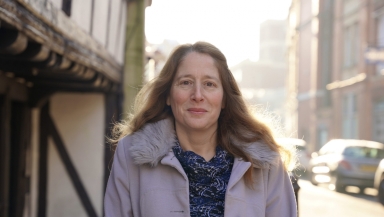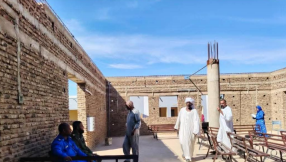
A pro-life volunteer who was arrested in England over silent prayer has warned against Scottish legislation that proposes bringing in abortion clinic buffer zones nationwide.
Isabel Vaughan-Spruce gave her testimony to the Scottish Parliament's Health, Social Care and Sport Committee in which she shared her experience of being arrest within an abortion clinic buffer zone in Birmingham last year.
She was charged with "engaging in an act that is intimidating to service users" after telling officers that she "might be praying inside [her] head".
She was arrested and charged despite the clinic being closed at the time but was later fully acquitted at Birmingham Magistrates Court after the prosecution was unable to provide evidence of her thoughts.
Addressing the committee, Vaughan-Spruce said she feared "thoughtcrime" and similar arrests will become a reality in Scotland if the legislation is passed. She called on parliamentarians to promote tolerance, not censorship.
"After having to clear my name in court I was rearrested two weeks later being told 'my prayers were an offence'. I'm concerned that this will end up happening in Scotland. Nobody should be punished for a 'thoughtcrime' – yet this proposed legislation could easily allow that to happen," she said.
She told the committee that the buffer zone had "created a huge amount of division" in the area and that many locals "are now fearful to share their beliefs with their neighbours".
"The community has become polarised and the buffer zone has fostered intolerance," she said.
"I wholly recommend that the Scottish government protect freedom of thought and of speech in Scotland, and promote tolerance rather than censorship."
The committee also heard from Alina Dulgheriu, a mother who received help with an unplanned pregnancy from pro-life volunteers outside an abortion clinic. She now runs a network for women who have received similar help called Be Here For Me.
Dulgheriu said that pro-life volunteers offer "much-needed" support to vulnerable women.
"I didn't want an abortion but I was abandoned by my partner, my friends and society. My financial situation at the time would have made raising a child very challenging," she said.
"Thanks to the help I was offered by a group outside of a clinic before my appointment, my daughter is here today. Stopping people from offering much-needed services and resources for women in my situation is wrong. Let them help."
She went on to say that making buffer zones law would deprive women of access to potentially "life-changing information – especially when facing one of the most challenging decision of their lives that could have lasting ramifications on their mental and physical health".
"Removing the option to receive help to keep a child in case we feel offended is deeply patronising and assumes that woman can't make a decision for ourselves or that we might choose the wrong option," she said.
"My case is not a one-off. There are many hundreds of women just like me who have benefitted from this support. Yet we are all too often ignored."
Lois McLatchie Miller, spokesperson for the Alliance Defending Freedom UK (ADF) in Scotland, said that the Bill is "one of the most extensive crackdowns on pro-life thought and speech we've seen".
"As drafted, it could even ban prayer and peaceful pro-life speech within homes if they are situated sufficiently near an abortion facility," she said.
"The proposal would also allow the 150m distance of the buffer zone to be expanded by local authorities to an unlimited extent.
"It is vital that the parliament take heed of the stories of Alina and Isabel, and uphold their duty to protect freedom of thought, offers of help, and consensual conversation."













